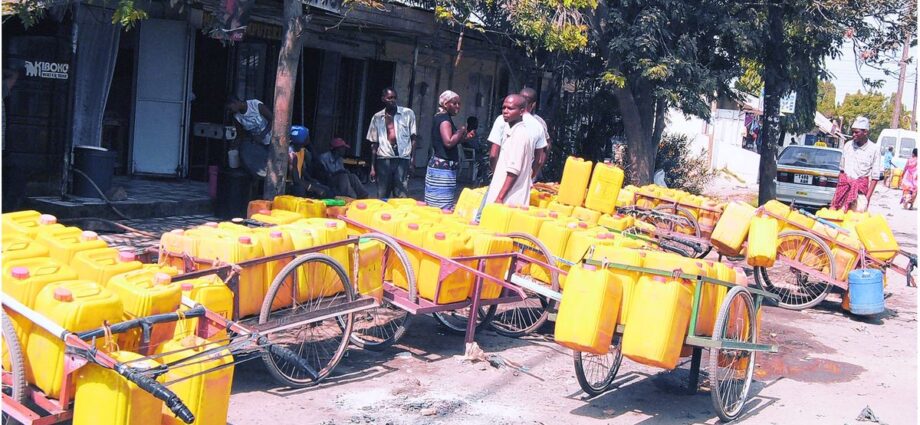For food and water, scientists will tell you, if one stops taking both, the human body will survive for 3 to 5 days. Studies indicate that one may survive for three weeks or so if one is drinking water only. But when we have plenty, we take them for granted.
At the moment, in Dar es Salaam, we are facing a severe water shortage; yes, every living organism depends on this precious resource for survival. The city relies on piped water, and the precious liquid has been rationed in some areas, with people missing for three weeks or more.
At least we live in an age where we have bottled water for those who can afford to buy it-at least for drinking. Clean water trading companies are doing great business now, while majority people are left without a choice but to buy water for drinking. For other uses like washing clothes and cleaning, we buy water in the streets from boreholes we even don’t know about their safety and cleanliness. In Dar es Salaam, boreholes are often not far from pit latrines or sewers run nearby in densely populated areas.
Some individuals don’t care; they will even sell water that they are sure is mixed with sewerage. To make it worse, some families are impoverished and cannot afford bottled water for cooking or drinking. So they exclusively depend on water from unlicensed street vendors, whose safety is not guaranteed, for lack of a choice.
Since I came to Dar es Salaam City almost two decades ago, I had never experienced such seriousness of water shortage as now. Imagine the cost of buying water to a family with more than five people going for consecutive weeks without such a precious liquid!
Dar es Salaam Water and Sewerage Authority (DAWASA) has reported that its primary source, the Ruvu River, was experiencing a low water level. Initially, the authority publicly declared rationing, but the situation is now at its worst. In some areas like where I stay, it’s no longer rationing, there has been no tap water at all for weeks. In the past years, when there was rationing, at least we would get water once or twice a week.
DAWASA had indicated the rationing would not be severe, but the reality is that regular water supply has become a huge problem! Hopefully, it does not bring a health crisis. At least for regulated bottled water businesses, we are assured of safety. But for the water from dubious sources, including those close to sewers, there may be a spike of diseases like cholera, and diarrhea, among others.
Yes, water shortage is a result of climate change, which directly affects water resources. This is because high temperature associated with climate change causes shifts in rainfall (droughts) and water levels. The situation is worse because different water sources, such as rivers, have dried up or have dramatically low levels.
If human beings want to save mother earth, we must mitigate climate change by reducing the flow of greenhouse gases into the atmosphere. Secondly, we have to adapt to climate change. So for Dar es Salaam, should we start ‘cleaning’ (desalination) ocean water for domestic consumption, like the way some Middle East nations are doing?
Share this news
This Year’s Most Read News Stories

Zanzibar liquor importers face fresh hurdle despite court order
The liquor shortage in Zanzibar is far from over, even after a court order granted relief to the three importers.Continue Reading

Zanzibar Investor British Dad talks about being jailed on paradise island
British investor and hotelier Simon Wood, from Preston, Lancashire, and his wife Francesca Scalfari were locked up in a Zanzibar prison charged with money laundering. Both were released after pressure from British Embassy.Continue Reading
John Okello: From Zanzibar revolution icon to street beggar
In the final episode, we look at Okello’s ban in Tanganyika, rejection in Kenya tragic end in Uganda.Continue Reading











